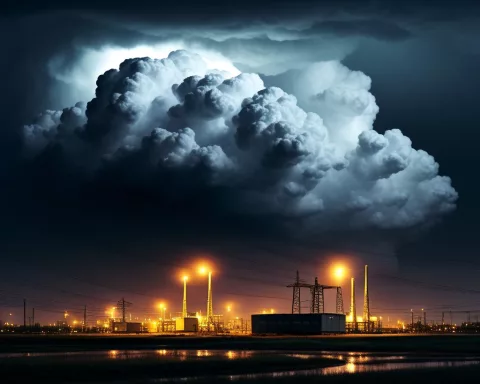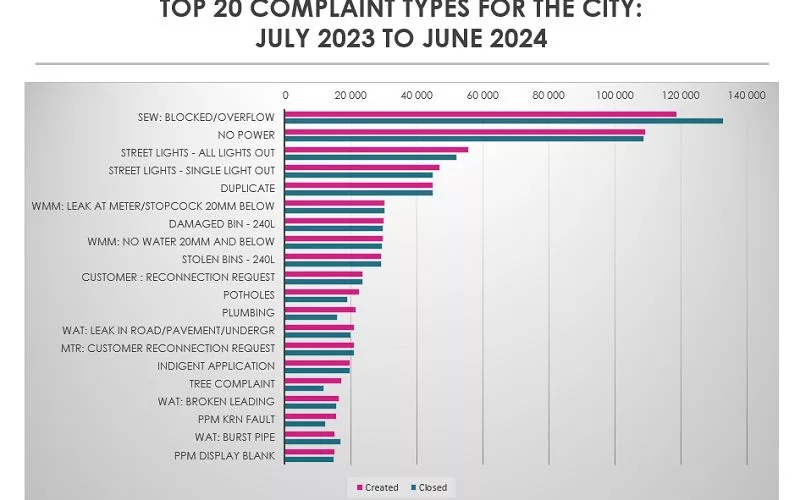Cape Town’s Mayor, Geordin Hill-Lewis, has strongly opposed Eskom’s proposed 44% electricity tariff increase and written to the National Energy Regulator expressing concerns over the impact on households and smaller businesses. The city aims to reduce its reliance on Eskom by procuring more cost-effective power from the open market and has introduced measures to protect less affluent households from tariff hikes. Mayor Hill-Lewis has called for scrutiny of Eskom’s cost structures and margins, urging the utility to improve its operational strategy and investigate alternative revenue sources.
Cape Town’s Mayor, Geordin Hill-Lewis, has written to the National Energy Regulator expressing strong disapproval of Eskom’s proposed 44% electricity tariff increase. Hill-Lewis highlights the impact this will have on households and businesses, particularly smaller enterprises, and calls for scrutiny of Eskom’s cost structures and margins. Cape Town aims to diminish its reliance on Eskom by procuring more cost-effective power from the open market and has introduced measures to shield less affluent households from Eskom’s tariff hikes. As a national leader in this space, Cape Town’s opposition to the proposed hike highlights a unified resistance.
In the intricate world of energy policies and economic realism, Cape Town’s mayor, Geordin Hill-Lewis, has taken a decisive step. He has officially dispatched a letter to the National Energy Regulator (Nersa), expressing strong disapproval of Eskom’s proposed 44% electricity tariff increase. This yet-to-be-officially-presented audacious proposal by Eskom has triggered considerable anxiety throughout the city.
The state-owned electricity supplier, Eskom, has signalled its intention for a 44% tariff upsurge for electricity sales to municipalities, together with a 36% hike for direct customers. Amidst this unsettling situation, Cape Town’s leadership, epitomized by Mayor Hill-Lewis’s communication with Nersa on August 20, stands out as a glimmer of optimism.
The mayor’s fervent appeal to Nersa underscores the city’s resolute resistance to Eskom’s impending tariff increase. “This is an enormous Eskom hike that Nersa must halt immediately. It is beyond comprehension,” Mayor Hill-Lewis insists. Advocating vehemently for Cape Town’s households and businesses, particularly the smaller enterprises, his objection to the 44% electricity tariff rise is grounded in concerns over the economic fallout and the strain it will impose on less affluent families.
A Call for Scrutiny of Eskom’s Proposed Increase
In Mayor Hill-Lewis’s view, Eskom’s proposed increase is an unappealing endeavour to shift the financial repercussions of its flawed operational decisions onto the consumers. This includes a history marred by mismanagement and corruption scandals. The mayor has urged Nersa to seize the initiative and employ independent expertise to rigorously examine Eskom’s cost structures and margins.
His argument is that Eskom has the capabilities and should hence strive for a more efficient operational strategy, curtail costs, and investigate alternative revenue avenues instead of burdening consumers with this staggering increase.
Cape Town’s Progressive Energy Policies
Cape Town, a municipality known for its forward-thinking energy policies, intends to diminish its reliance on Eskom by procuring more cost-effective power from the open market. To actualize this vision of a decentralized and vibrant energy future, the city has set aside a substantial R4 billion for electricity grid upgrades over the coming three years. This initiative is poised to equip the city with diverse power sources and a multitude of smaller scale generators.
“Cape Town is among the few municipalities that base our own tariff proposals to Nersa on comprehensive cost-of-supply studies,” Hill-Lewis explains, highlighting the city’s strategic approach. He delves into the city’s comprehensive understanding of the operational expenses involved in delivering a future-oriented, efficient electricity service, emphasizing that purchases from Eskom constitute 70% of these costs.
In recent years, Cape Town has introduced measures to shield less affluent households from Eskom’s tariff hikes. The city currently offers the broadest qualifying criteria for Lifeline electricity in the country. These initiatives have resulted in a decrease in Lifeline electricity expenses over the past two years.
Cape Town’s Efforts to Protect its Residents
Cape Town has emerged as a national leader when it comes to residents receiving free basic water and electricity. Data from the Non-Financial Census for municipalities, released by StatsSA in March 2024, reveals that the city is leading the next metro by a considerable 10 percentage points for free electricity coverage and 25 percentage points for gratis water and sanitation services.
This proposed tariff surge by Eskom appears to have galvanized a unified resistance, with Cape Town leading the charge to protect its residents from the potentially catastrophic economic ramifications. As the city’s leadership holds the line, the resolution of this proposal now lies in the hands of Nersa. Whatever decision they make, it will undoubtedly carry significant consequences not just for Cape Town, but for the entirety of South Africa.
1. What is Cape Town’s stance on Eskom’s proposed electricity tariff increase?
Cape Town’s Mayor, Geordin Hill-Lewis, strongly opposes Eskom’s proposed 44% electricity tariff increase and has written to the National Energy Regulator expressing concerns over the impact on households and smaller businesses.
2. How does Cape Town plan to reduce its reliance on Eskom?
Cape Town aims to reduce its reliance on Eskom by procuring more cost-effective power from the open market and has introduced measures to protect less affluent households from tariff hikes. The city has set aside a substantial R4 billion for electricity grid upgrades over the coming three years to equip the city with diverse power sources and a multitude of smaller scale generators.
3. What has Cape Town done to shield less affluent households from Eskom’s tariff hikes?
Cape Town has introduced measures to shield less affluent households from Eskom’s tariff hikes, including offering the broadest qualifying criteria for Lifeline electricity in the country and free basic water and electricity to its residents.
4. What is the basis for Cape Town’s objection to Eskom’s proposed increase?
Mayor Hill-Lewis argues that Eskom’s proposed increase is an attempt to shift the financial repercussions of its flawed operational decisions onto consumers. The mayor has urged Nersa to employ independent expertise to rigorously examine Eskom’s cost structures and margins and investigate alternative revenue sources.
5. How does Cape Town view its energy policies?
Cape Town is known for its forward-thinking energy policies and aims to diminish its reliance on Eskom by procuring more cost-effective power from the open market. The city bases its own tariff proposals to Nersa on comprehensive cost-of-supply studies and has set aside a substantial R4 billion for electricity grid upgrades over the coming three years to equip the city with diverse power sources and a multitude of smaller scale generators.
6. What is the significance of Cape Town’s opposition to Eskom’s proposed increase?
Cape Town’s opposition to Eskom’s proposed increase highlights a unified resistance and the city’s efforts to protect its residents from the potentially catastrophic economic ramifications. Whatever decision Nersa makes, it will undoubtedly carry significant consequences not just for Cape Town, but for the entirety of South Africa.












